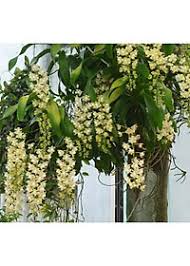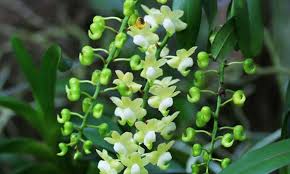“Martial Arts Odyssey” embarks on a global journey exploring the diverse world of fighting styles, where practitioners travel across continents to immerse themselves in traditional disciplines, cultural heritage, and dynamic combat techniques. This guide delves into the rich tapestry of martial arts, showcasing the historical roots, cultural influences, and personal experiences of martial artists who traverse the globe in pursuit of mastery, enlightenment, and the transformative power of martial arts.

Part 1: Historical Roots and Cultural Heritage
Origins and Evolution of Martial Arts
Martial arts have evolved over centuries, originating from ancient civilizations and cultural traditions where combat techniques were developed for self-defense, military training, and spiritual enlightenment. Historical roots trace back to ancient China, India, Japan, and Southeast Asia, where martial arts disciplines such as kung fu, karate, taekwondo, and muay thai emerged as integral components of cultural identity, philosophical wisdom, and physical conditioning. Understanding the historical evolution and cultural heritage of martial arts enriches practitioners’ appreciation for the diverse traditions, philosophical insights, and technical innovations that shape modern martial arts disciplines across the globe.
Cultural Influences and Philosophical Foundations
Cultural influences play a significant role in shaping martial arts disciplines, imbuing techniques with philosophical foundations, ethical principles, and spiritual teachings that guide practitioners on their martial arts odyssey. From the philosophical principles of harmony and balance in Japanese martial arts to the spiritual discipline and mindfulness in Chinese martial arts, cultural influences impart moral virtues, social values, and personal development that transcend physical combat and promote holistic well-being. By embracing cultural diversity and philosophical wisdom, martial artists deepen their understanding of martial arts as a cultural legacy, philosophical pursuit, and transformative journey of self-discovery.
Traditional Training Methods and Ritual Practices
Traditional training methods and ritual practices are integral to martial arts disciplines, providing structured frameworks, disciplined routines, and ceremonial rituals that cultivate discipline, resilience, and mastery in practitioners. Martial arts academies, dojos, and training temples uphold traditional practices such as bowing, meditation, and ceremonial etiquette that instill respect, humility, and mental focus in students preparing to embark on their martial arts odyssey. By adhering to traditional training methods and ritual practices, martial artists honor cultural heritage, uphold martial arts traditions, and cultivate a deep sense of reverence for the teachings, rituals, and spiritual essence of traditional martial arts disciplines.
Part 2: Global Exploration and Cultural Exchange
Journey Across Continents and Regional Variations
“Martial Arts Odyssey” unfolds as a global exploration of diverse martial arts disciplines, inviting practitioners to travel across continents and immerse themselves in regional variations, stylistic nuances, and unique fighting techniques that distinguish martial arts traditions worldwide. From the disciplined strikes of Muay Thai in Thailand to the fluid movements of Capoeira in Brazil and the precise forms of Taekwondo in South Korea, martial artists embrace regional diversity, cultural authenticity, and stylistic variations that reflect geographical influences, historical legacies, and regional martial arts philosophies. By embarking on a journey across continents, martial artists expand their knowledge, deepen their skills, and forge cultural connections that transcend borders in a shared pursuit of martial arts mastery and global understanding.
Cultural Exchange and Cross-Cultural Learning
“Martial Arts Odyssey” fosters cultural exchange and cross-cultural learning among practitioners who engage in immersive experiences, cultural immersion programs, and collaborative training sessions that promote mutual respect, cultural appreciation, and interpersonal understanding through martial arts practice. International seminars, cultural workshops, and martial arts retreats provide platforms for practitioners to exchange knowledge, share experiences, and learn from diverse martial arts traditions, perspectives, and technical insights that enrich their martial arts odyssey. By embracing cultural exchange, cross-cultural learning, and global connectivity, martial artists cultivate empathy, cultural awareness, and a sense of unity in the global community of martial arts practitioners united by a shared passion for martial arts excellence and cultural enrichment.
Ethical Conduct and Cultural Respect
“Martial Arts Odyssey” promotes ethical conduct and cultural respect as fundamental principles of martial arts practice, emphasizing values such as integrity, humility, and respect for cultural diversity in interactions with fellow practitioners, instructors, and host communities during global travels. Martial artists uphold ethical standards, demonstrate cultural sensitivity, and adhere to martial arts etiquette that fosters mutual respect, cultural understanding, and positive engagement in diverse cultural settings. By embodying ethical conduct and cultural respect, martial artists exemplify the values of martial arts discipline, promote harmonious relationships, and contribute to cultural diplomacy as ambassadors of goodwill and cultural enrichment through their martial arts odyssey.
Part 3: Personal Growth and Mastery
Physical Conditioning and Technical Proficiency
“Martial Arts Odyssey” emphasizes physical conditioning and technical proficiency as essential components of martial arts mastery, challenging practitioners to develop strength, flexibility, endurance, and precision through rigorous training regimens, skill development exercises, and progressive learning techniques. Martial artists engage in cardiovascular conditioning, strength training, and martial arts drills that enhance physical fitness, technical precision, and martial arts proficiency essential for optimal performance and continuous improvement in their martial arts odyssey. By prioritizing physical conditioning and technical proficiency, martial artists cultivate resilience, discipline, and athletic prowess that elevate their competitive edge and mastery of martial arts disciplines across global training environments.
Mental Discipline and Emotional Resilience
Martial arts cultivate mental discipline and emotional resilience, empowering practitioners to develop focused concentration, mental clarity, and emotional control through meditation, mindfulness, and psychological conditioning techniques that enhance cognitive function, stress management, and emotional resilience in competitive and challenging environments. Martial artists practice mental discipline, visualize success, and cultivate inner strength that enables them to overcome adversity, navigate uncertainty, and maintain peak performance during their martial arts odyssey. By fostering mental discipline and emotional resilience, martial artists strengthen their mindset, enhance their psychological well-being, and achieve personal growth, mastery, and lifelong resilience through their martial arts journey.
Spiritual Enlightenment and Philosophical Insight
“Martial Arts Odyssey” offers spiritual enlightenment and philosophical insight through introspective reflection, philosophical study, and spiritual practices that explore the deeper meaning, ethical principles, and spiritual teachings embedded within martial arts disciplines. Martial artists embrace philosophical wisdom, cultivate moral virtues, and embody spiritual principles such as humility, compassion, and self-awareness that foster personal growth, moral development, and spiritual enlightenment in their martial arts odyssey. By pursuing spiritual enlightenment and philosophical insight, martial artists deepen their understanding of martial arts as a transformative journey of self-discovery, ethical living, and holistic well-being that transcends physical combat and promotes spiritual harmony in the global community of martial arts practitioners united by a shared commitment to martial arts excellence and cultural enrichment.



